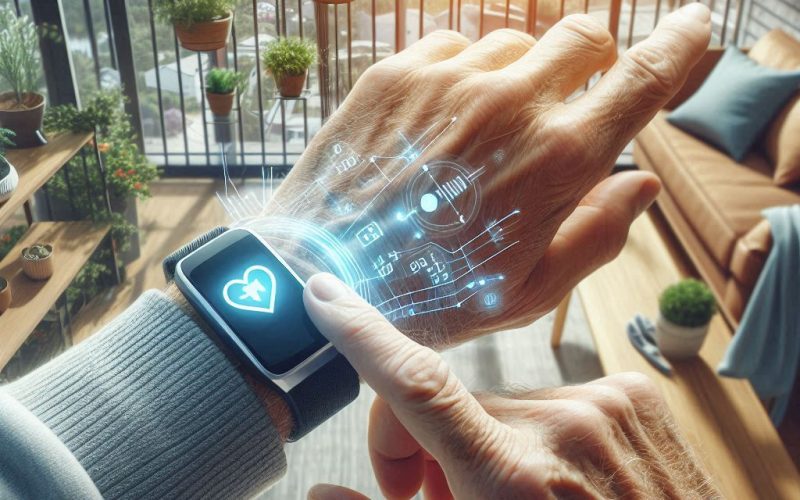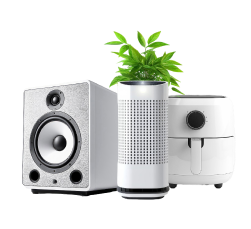The technology world is advancing at an unprecedented rate today, and wearable technology is one area that is growing rapidly. These devices have moved beyond basic fitness tracking to offer sophisticated health monitoring and safety features. This evolution is particularly significant for seniors, who can greatly benefit from these advancements.
Wearable technology for seniors is not just about convenience; it is about enhancing their quality of life, ensuring safety, and providing peace of mind for the users and their families. This article will explore the growing trend of wearables for seniors, examining their benefits, key features, top products of 2024, and the challenges they pose.
By understanding these aspects, seniors and their caregivers can decide which devices best meet their needs.
Table of Contents
Benefits for Seniors
Health Monitoring
One of the primary benefits of senior health wearables is continuous health monitoring. These devices can track vital signs such as heart rate, blood pressure, and oxygen levels. Continuous monitoring helps in the early detection of potential health issues, enabling timely medical intervention. For instance, detecting irregular heart rhythms early can prevent severe complications.
Fall Detection and Emergency Alerts
Falls are a leading cause of injury among seniors. Wearables equipped with fall detection technology can automatically alert emergency contacts or services if a fall is detected. This feature is crucial as it ensures that help is dispatched immediately, reducing the risk of complications from prolonged periods without assistance.
Medication Reminders
Adherence to medication schedules is essential for managing chronic conditions. Many wearables come with reminder features, ensuring seniors take their medications on time. This reduces the risk of missed doses and helps maintain consistent treatment regimens.
Fitness Tracking
Encouraging an active lifestyle is vital for maintaining senior health. Wearables can track physical activity, set goals, and provide feedback, motivating seniors to stay active. This not only improves physical health but also has positive effects on mental well-being.
Sleep Monitoring
Proper sleep is essential for overall health. Wearables can monitor sleep patterns, providing insights into sleep quality and identifying issues like insomnia or sleep apnea. Understanding sleep patterns can help make lifestyle changes or seek medical advice to improve sleep quality.
Location Tracking
GPS-enabled wearables can track the location of seniors, providing an added layer of safety for those prone to wandering, such as individuals with dementia or Alzheimer’s disease. This feature ensures caregivers can quickly locate their loved ones if they go missing.
Mental Health Support
Mental health is as important as physical health. Some wearables offer guided meditation, stress monitoring, and mood-tracking features. These tools can help manage anxiety and promote mental well-being, ensuring a holistic approach to health.
Key Features to Consider
Ease of Use
The device should have a simple, intuitive interface. Large buttons, clear displays, and voice commands can make the wearable more accessible to seniors who may not be tech-savvy. Ensuring that the device is easy to operate reduces the likelihood of it being unused.
Comfort and Design
Since these devices are worn continuously, comfort is paramount. Lightweight, ergonomic designs with adjustable straps ensure the wearable is not cumbersome. The materials used should be skin-friendly to avoid any irritation.
Battery Life
A long battery life minimizes frequent recharging, ensuring the device is always functional when needed. Devices with extended battery life are especially advantageous for seniors, offering them greater convenience and peace of mind by reducing the need for frequent charging.
Durability
Wearables for seniors should be robust and water-resistant to withstand everyday use and potential accidents. Durable designs ensure longevity and reliability, making the investment worthwhile.
Compatibility
Some wearables require a connection to smartphones or other devices. Ensure compatibility with existing devices and consider whether the senior user can manage these connections. Compatibility also extends to integration with health apps and services.
Health Tracking Features
Look for comprehensive health monitoring devices, including heart rate, blood pressure, activity levels, and sleep patterns. The more health metrics a device can track, the better it can provide a complete picture of the user’s health.
Emergency Features
Fall detection, SOS buttons, and automatic emergency alerts are crucial features that can make a significant difference in urgent situations. These features should be reliable and easy to activate.
Customization and Personalization
The ability to customize alerts, reminders, and notifications based on individual health needs and preferences can enhance the effectiveness of the wearable. Personalized settings ensure that the device meets the user's specific needs.
Top Senior Health Tech Wearables of 2024
Here are the top senior health tech wearables of 2024, each with its unique features, pros and cons, and price range:
Apple Watch Series 8
Description: The Apple Watch Series 8 continues Apple's legacy of innovation, offering advanced health tracking and safety features tailored for seniors. This smartwatch combines cutting-edge technology with a user-friendly design, making it a top choice for senior health monitoring.
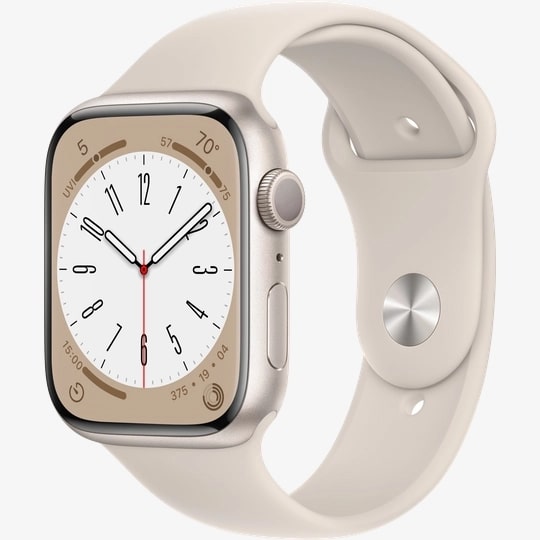
Key Features and Specifications:
- ECG and Blood Oxygen Monitoring: Provides detailed heart health insights and detects irregular heart rhythms.
- Fall Detection and Emergency SOS: Automatically contacts emergency services and designated contacts if a fall is detected.
- GPS and Cellular Connectivity: Ensures constant location tracking and connectivity without a smartphone.
- Heart Rate Monitoring: Continuously tracks heart rate and alerts for irregularities.
- Sleep Tracking: Monitors sleep patterns and provide insights to improve sleep quality.
- Water-resistant up to 50 meters: Suitable for swimming and daily wear.
Pros:
- Comprehensive health monitoring capabilities.
- High-quality display and durable build.
- Wide range of third-party apps.
- Seamless integration with other Apple devices.
Cons:
- Expensive compared to other options.
- Requires an iPhone for full functionality.
Price Range: $399 – $799
Fitbit Sense 2
Description: The Fitbit Sense 2 is a versatile smartwatch with extensive health and wellness features suitable for seniors. Known for its focus on holistic health, the Sense 2 provides tools for both physical and mental well-being.
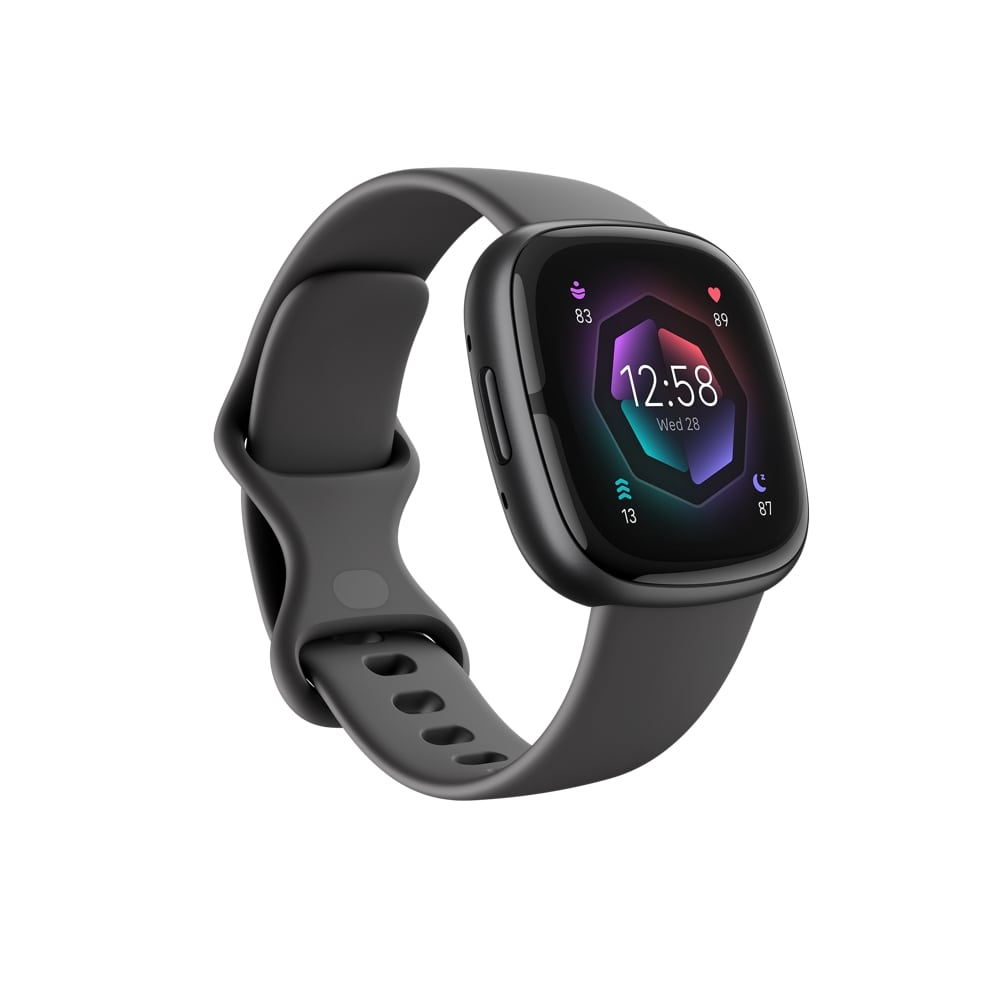
Key Features and Specifications:
- ECG and EDA (Electrodermal Activity) Monitoring: Tracks heart health and stress levels.
- Stress Management Tools: Provides insights and recommendations to manage stress.
- Skin Temperature Tracking: Monitors changes in skin temperature for health insights.
- Sleep Tracking and Insights: Offers detailed sleep analysis and recommendations.
- Built-in GPS: Tracks outdoor activities and provides accurate location data.
- Heart Rate Monitoring: Continuous heart rate tracking with personalized insights.
Pros:
- Affordable compared to other high-end smartwatches.
- Excellent battery life (up to 6 days).
- User-friendly interface.
- Comprehensive health insights.
Cons:
- Limited app ecosystem compared to Apple.
- No cellular option.
Price Range: $259 – $329
LifeFone VIPx
Description: The LifeFone VIPx is a dedicated medical alert device designed specifically for seniors. It focuses on safety and emergency response and is ideal for seniors who need reliable emergency support without the complexities of a smartwatch.
Key Features and Specifications:
- Fall Detection: Automatically detects falls and alerts emergency services.
- GPS Location Tracking: Ensures caregivers can locate the user in an emergency.
- Two-Way Communication with Emergency Services: Allows direct communication with emergency responders.
- Long Battery Life: Lasts up to 16 days on a single charge.
- Water-resistant: Suitable for wearing in the shower or during water activities.
Pros:
- Specialized for emergencies.
- Excellent battery life.
- Simple and easy to use.
- No need for a smartphone.
Cons:
- Limited health tracking features.
- A monthly subscription is required.
Price Range: $39.95/month (device included in subscription)
Samsung Galaxy Watch 6
Description: The Samsung Galaxy Watch 6 is a robust smartwatch that combines comprehensive health tracking with smart features. It is suitable for tech-savvy seniors and offers a wide range of functionalities, making it a versatile option for health monitoring and daily use.
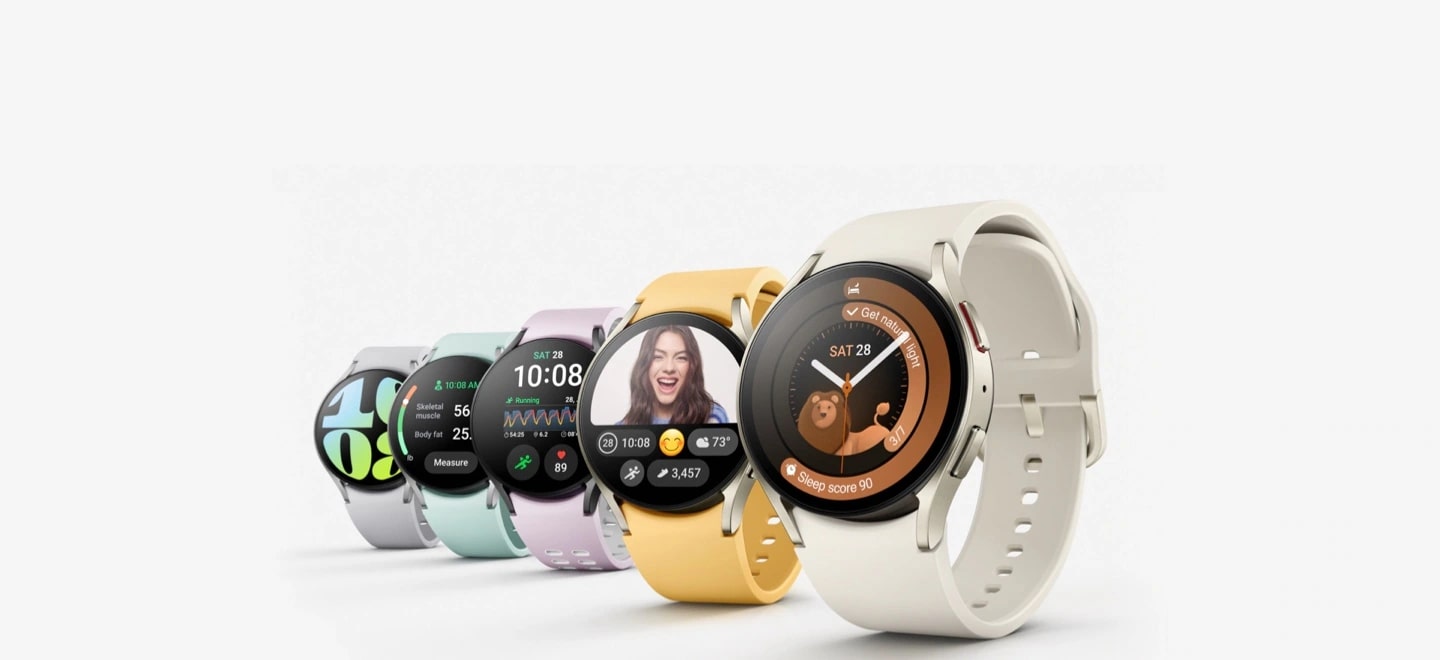
Key Features and Specifications:
- ECG and Blood Pressure Monitoring: Provides detailed cardiovascular insights.
- Fall Detection and SOS Alerts: Ensures immediate help in case of falls or emergencies.
- GPS and LTE Connectivity: Offers location tracking and independence from smartphones.
- Sleep Tracking: Analyzes sleep patterns and provides improvement suggestions.
- Heart Rate Monitoring: Tracks heart rate continuously with real-time alerts.
- Water-resistant (5 ATM): Suitable for swimming and everyday wear.
Pros:
- Extensive health monitoring features.
- High-quality display and durable build.
- Works well with both Android and iOS devices.
- Variety of apps available.
Cons:
- Battery life could be better.
- A more complex interface may be challenging for some seniors.
Price Range: $399 – $499
GreatCall Lively Mobile Plus
Description: The GreatCall Lively Mobile Plus is a simple and effective medical alert device that provides peace of mind for seniors and their families. It is focused on emergency response and designed for ease of use.
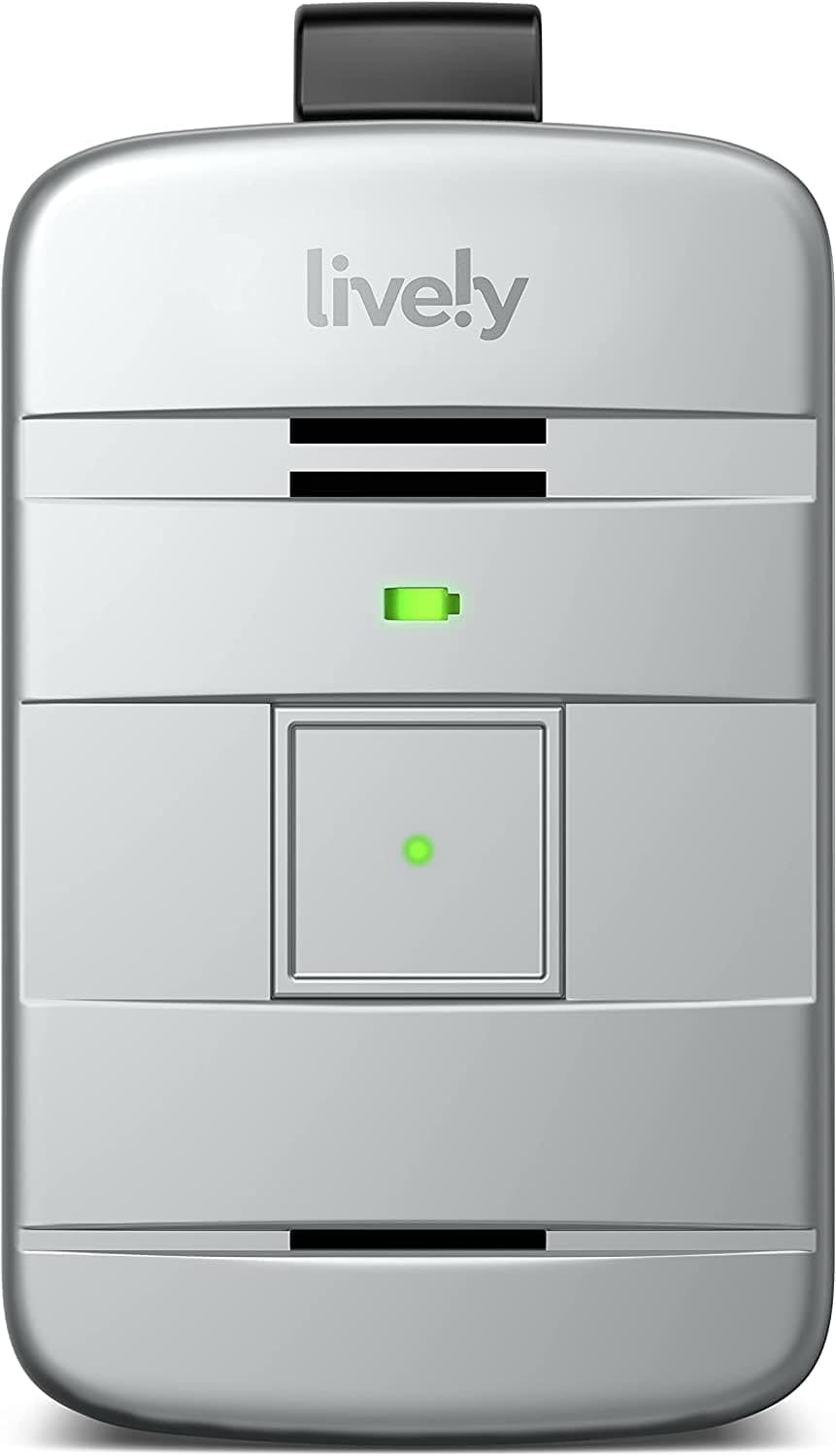
Key Features and Specifications:
- Fall Detection: Automatically detects falls and alerts emergency services.
- GPS Location Tracking: Provides accurate location data for caregivers.
- 5Star Urgent Response Service: Connects users with highly trained agents for emergency assistance.
- Water-resistant: This can be worn in the shower or during water activities.
- Long Battery Life: Lasts up to 24 hours on a single charge.
Pros:
- Focused on safety and emergency response.
- Easy to use with a simple interface.
- No smartphone is required.
- Affordable monthly plans.
Cons:
- Limited health tracking features.
- A monthly subscription is required.
Price Range: $24.99/month (device included in subscription)
Garmin Vivosmart 5
Description: The Garmin Vivosmart 5 is a fitness tracker with robust health monitoring features, making it an excellent choice for active seniors. Garmin’s reputation for accurate tracking and durable design makes this device a reliable option.
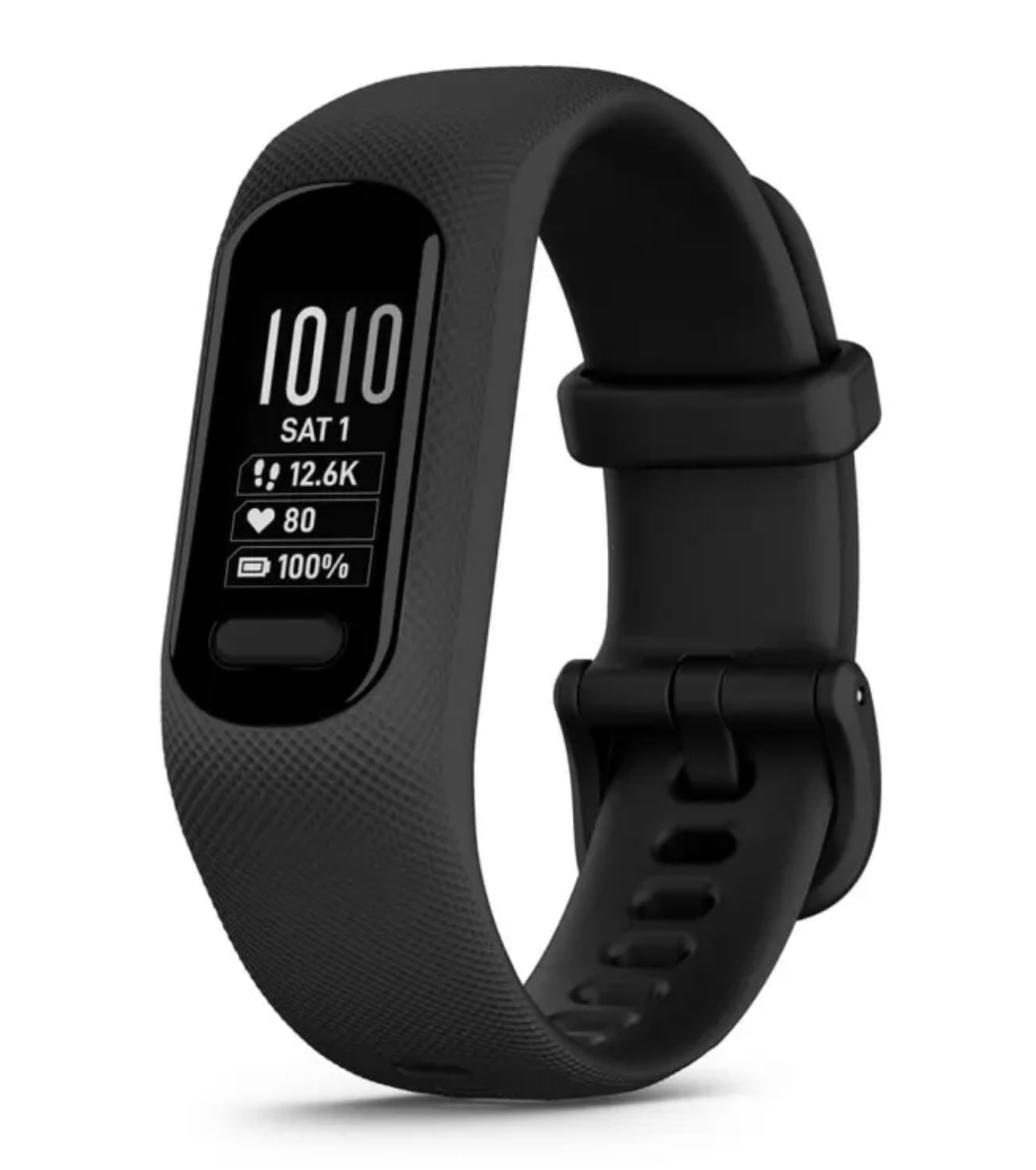
Key Features and Specifications:
- Pulse Ox and Heart Rate Monitoring: Tracks oxygen saturation and heart rate continuously.
- Body Battery Energy Monitoring: Assesses energy levels throughout the day.
- Stress Tracking and Relaxation Reminders: Monitors stress and provides relaxation techniques.
- Sleep Tracking: Analyzes sleep stages and quality.
- Hydration Tracking: Reminds users to stay hydrated.
- Activity Tracking: Tracks steps, calories burned, and intensity minutes.
Pros:
- Lightweight and comfortable to wear.
- Comprehensive health and activity tracking.
- Long battery life (up to 7 days).
- Water-resistant (swim-proof).
Cons:
- Lacks advanced smartwatch features.
- Smaller displays may be challenging for some seniors.
Price Range: $129.99 – $149.99
Medical Guardian Freedom 2.0
Description: The Medical Guardian Freedom 2.0 is a wearable medical alert system offering seniors advanced safety features. It is designed for those who prioritize safety and emergency response capabilities.
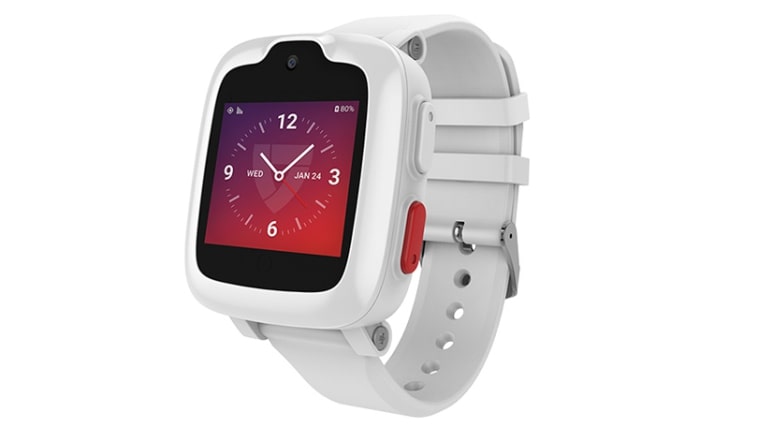
Key Features and Specifications:
- Fall Detection: Automatically detects falls and sends alerts to emergency contacts.
- GPS Location Tracking: Ensures that caregivers can quickly locate the user.
- Two-Way Communication: Direct communication with emergency services.
- Water-resistant: Suitable for wearing in wet conditions.
- Extended Battery Life: Lasts up to 5 days on a single charge.
Pros:
- Focused on safety and emergency response.
- Easy to use with a simple design.
- No smartphone is required.
- Provides peace of mind for users and caregivers.
Cons:
- Limited health tracking features.
- Requires a monthly subscription.
Price Range: $44.95/month (device included in subscription)
Healbe GoBe3
Description: The Healbe GoBe3 is a unique wearable that offers automatic calorie intake tracking and comprehensive health monitoring. It is a great choice for seniors interested in managing their nutrition and overall health.
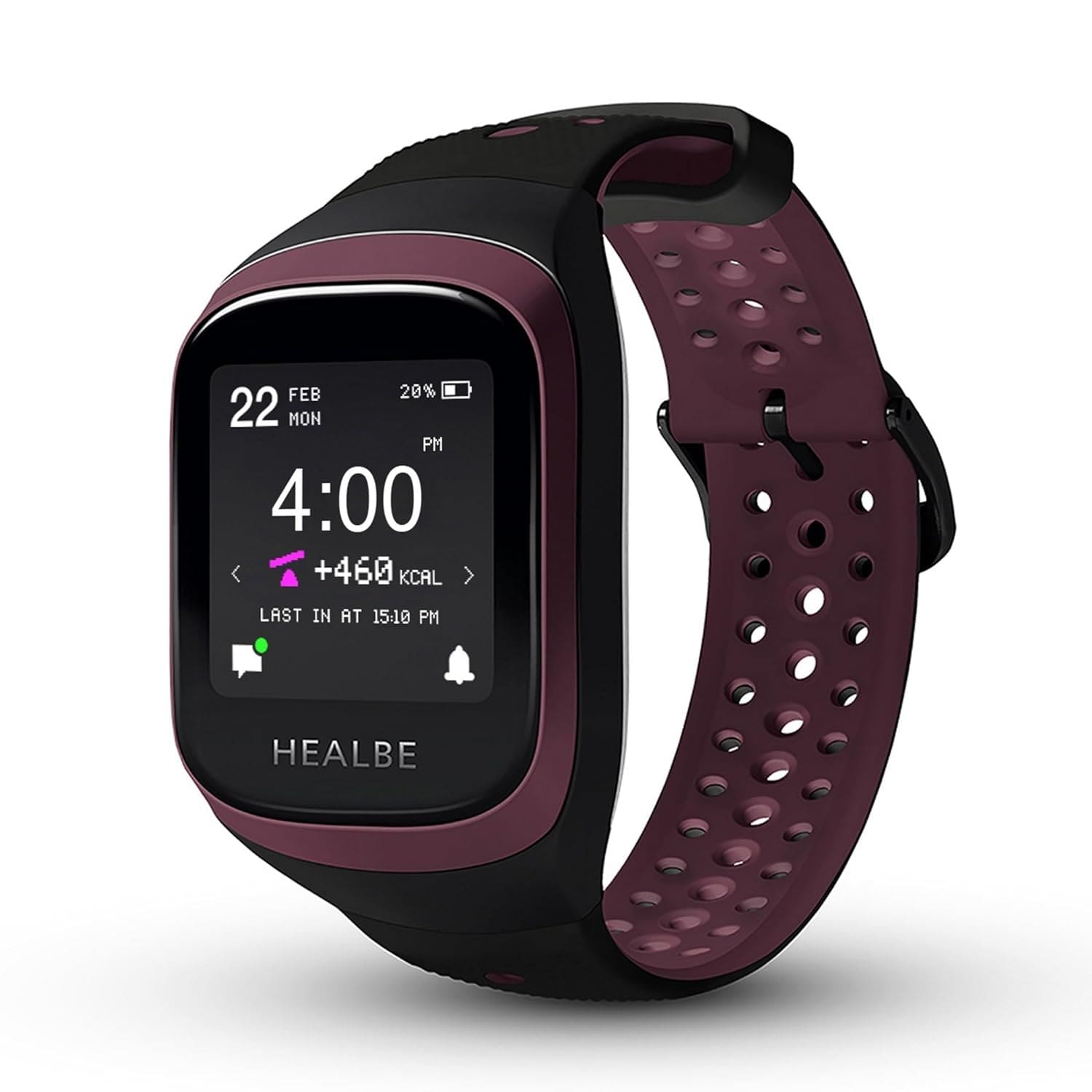
Key Features and Specifications:
- Automatic Calorie Intake Tracking: Monitors calorie intake through skin sensors.
- Heart Rate and Blood Pressure Monitoring: Provides continuous health data.
- Hydration Monitoring: Tracks fluid levels in the body.
- Sleep Tracking: Analyzes sleep quality and stages.
- Stress and Emotional State Monitoring: Provides insights into mental health.
- Activity Tracking: Tracks physical activity and calories burned.
Pros:
- Unique automatic calorie intake tracking.
- Comprehensive health monitoring features.
- Long battery life (up to 4 days).
- Water-resistant.
Cons:
- They are more expensive than traditional fitness trackers.
- It may require some time to understand and utilize all features.
Price Range: $199 – $249
Comparison Table
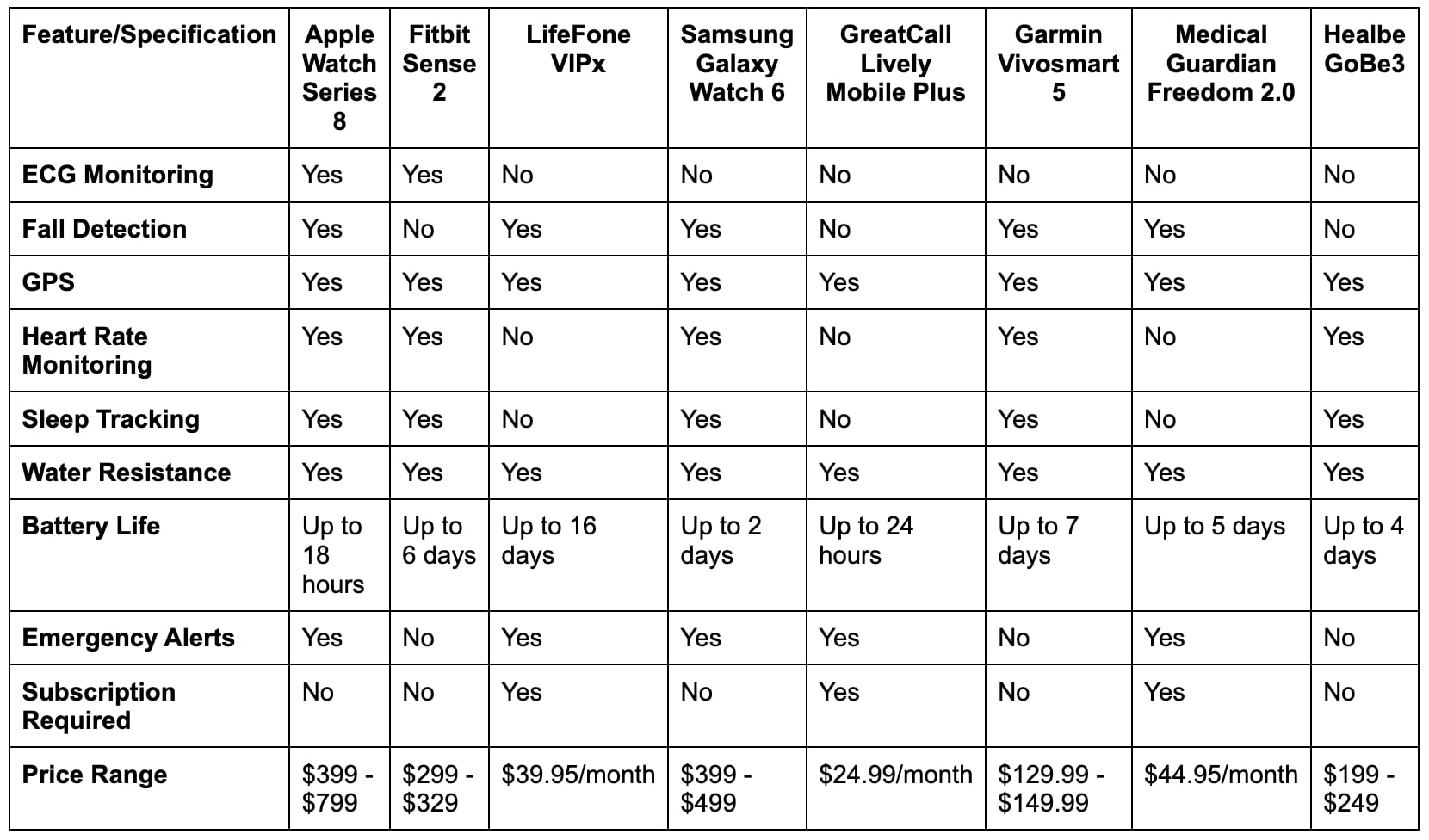
Wearable technology for seniors is a rapidly evolving field that offers significant benefits for health and safety. From comprehensive health monitoring to emergency alerts, these devices empower seniors to live more independently and provide peace of mind to their loved ones.
While choosing the right wearable can be challenging, understanding the key features and evaluating the top products can help make an informed decision. As technology advances, the future looks promising for wearables for seniors, paving the way for a healthier, safer, and more connected eldercare experience.
FAQ
What are senior health tech wearables?
Senior health tech wearables are devices designed to be worn by elderly individuals to monitor their health, enhance safety, and promote well-being. These devices can track vital signs, detect falls, provide emergency alerts, remind users to take medications, and more.
What is the best wearable for elderly people?
The best wearable for elderly people depends on individual needs and preferences. The Apple Watch Series 8 is highly recommended for its comprehensive health tracking and safety features. However, for those looking for a dedicated emergency response device, the LifeFone VIPx is an excellent choice.
Are senior health tech wearables easy for seniors to use?
Yes, many senior health tech wearables are designed with ease of use in mind. They often feature simple interfaces, large buttons, clear displays, and even voice commands to ensure they are accessible to seniors who may not be tech-savvy.
Do senior health tech wearables require a smartphone to function?
Not all senior health tech wearables require a smartphone to function. Devices like the LifeFone VIPx and GreatCall Lively Mobile Plus operate independently and do not need a smartphone. However, smartwatches like the Apple Watch Series 8 and Fitbit Sense 2 offer enhanced features when paired with a smartphone.
Conclusion
The growing wearable technology trend for seniors represents a significant leap forward in elder care and health management.
These devices provide many benefits, including continuous health monitoring, fall detection, emergency alerts, medication reminders, fitness tracking, sleep analysis, and mental health support. By integrating these features into everyday wearables, seniors can enjoy greater independence, safety, and well-being.
As the technology continues to evolve, the potential for these devices to improve the lives of seniors is immense. By staying informed about the latest advancements and carefully selecting the most suitable wearable, seniors and their caregivers can leverage these tools to maintain health, ensure safety, and enhance the quality of life.
Wearable technology for seniors is more than just a trend; it is a transformative approach to elder care that combines innovation with compassion.

